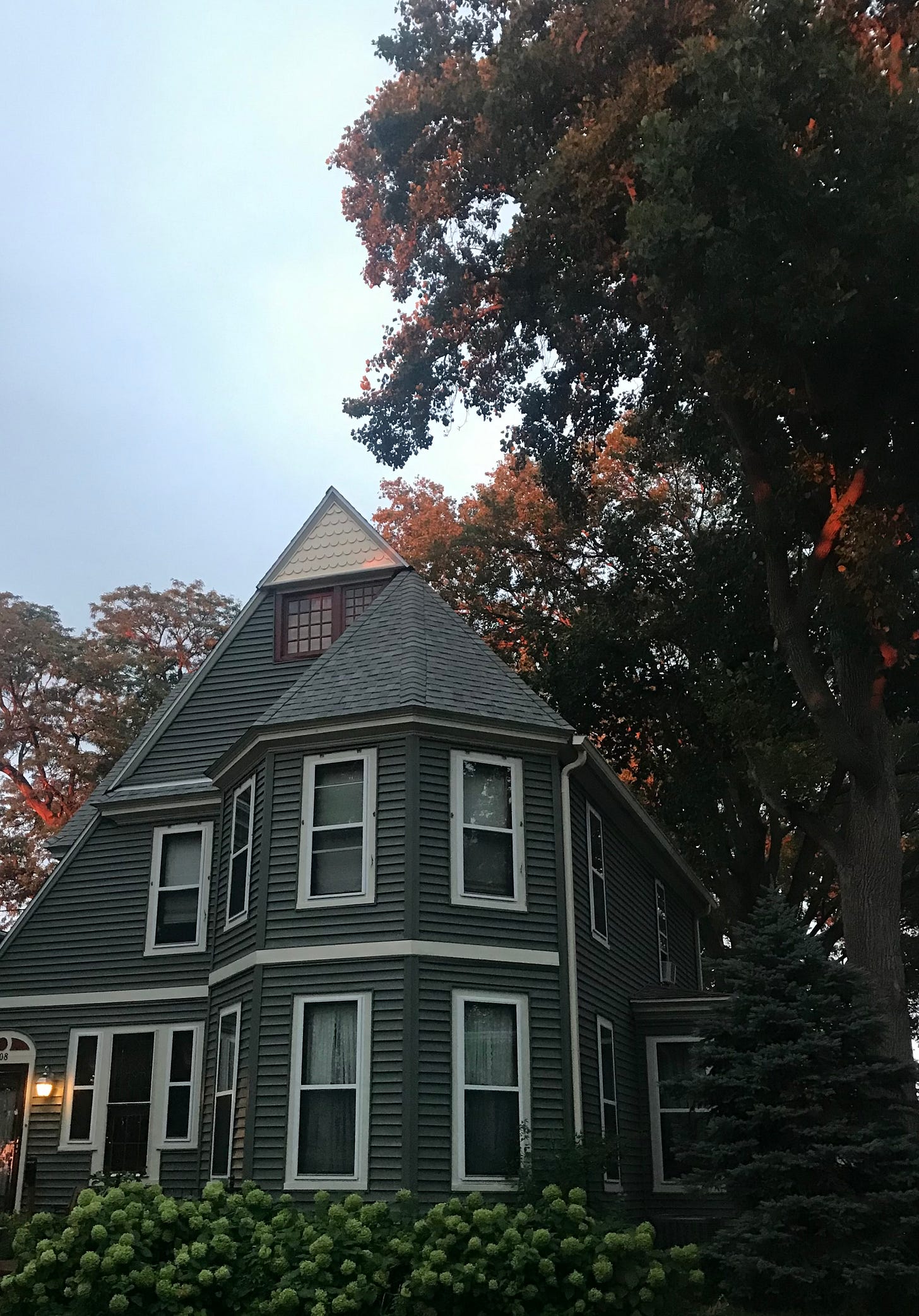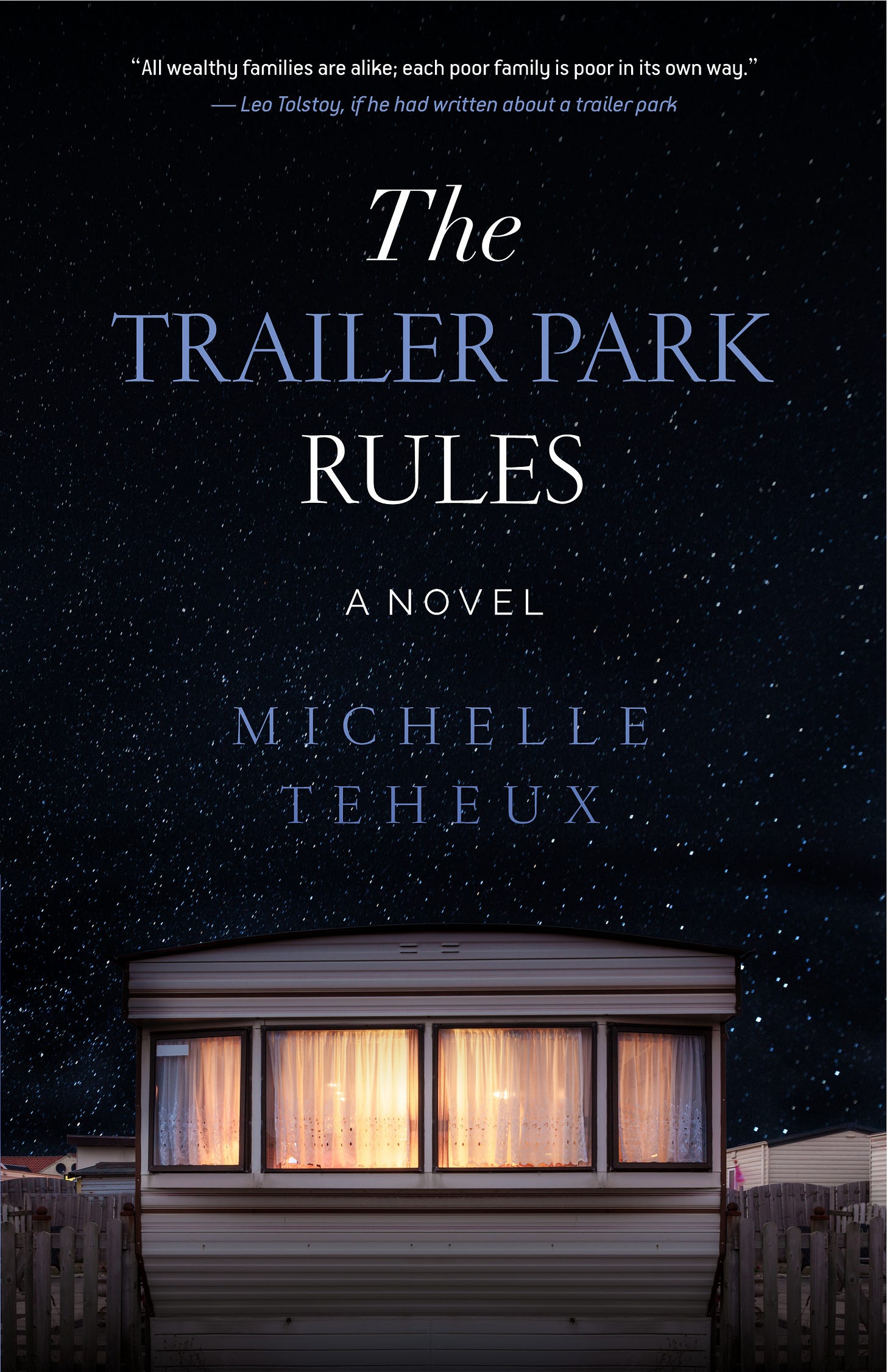Let’s Stop Calling Them Starter Homes
They’re just houses and you can live in them forever if you want
All my houses have been starter houses.
The idea of a “starter house” is that you buy it when you’re young and don’t have much money, and then after it appreciates in value and you make a bigger salary and start having babies you buy a bigger house. You could repeat the process and buy a bigger and more expensive house every few years.
But a lot of people aren’t having kids at all, or are only having one. Heck, a lot of people have zero interest in marriage and will be living in that house all by themselves – why would they want or need a house with three or four bedrooms just for themselves?
It’s almost impossible for young people today to buy any sort of house unless they buy in an area like mine where the houses are cheap enough that even creators like me can afford them. The idea that you’d pay $350K for a “starter” house you’d trade in a few years later is absurd. A lot of young Americans will be lucky to buy any sort of house.
Meanwhile, there’s a solid industry of influencers posting pictures of drool-worthy tiny houses that cost so much that for the same money you could buy a three-bedroom house with a nice yard in my town.
And who hasn’t thought about ditching everything for van life, sleeping in a different picturesque place each evening and paying your expenses by (ahem) writing on Substack?
Should you stay in your ‘starter’?
I know people who decided to stay in their first house, even after they could easily afford to purchase a larger one. These are people who find themselves house-payment-free by the age of 45, which allows them to retire early or take some nice trips or both.
One such woman said people often ask her if she and her husband are “still” living in the same neighborhood. They’ve all moved on and have much nicer houses. But she and her husband have something they like better – no debt and plenty of discretionary income.
When I was growing up, I knew a family with lots of children who somehow made do with a two-bedroom home. I babysat for them and know they were pretty packed into it. But after their children grew up, they bought a much larger house. By then, they could afford it. How ironic that they got the extra space only when they no longer needed it.
Sometimes, you move not because you want a bigger or better house but because circumstances force your hand.
My first starter house
I bought my first place in 1990. I was married to my first husband and our daughter was just a baby. It was a 1925 arts and crafts bungalow in an iffy neighborhood. I loved all the crown molding and built-ins. The original mirrored buffet in the dining room, the oak columns separating the living room from the dining room – it was all gorgeous.
Upstairs, closets and dressers had been built into the eaves, thanks to the architect who had turned the upstairs into living space. It was his starter house. I had so many drawers I never even used most of them.
We paid $37,500 for it and were grateful for the 9.5 percent interest rate because that was considered good then!
My second starter house
I was happy in the first house. It’s where we lived when our second baby was born. We were less than happy with the state of the neighborhood and the public schools, so off we went to a subdivision.
You’ve probably been in my second house. It was a 1970s quad-level – and if you’ve been in one you’ve been in them all. It was boring and devoid of charm but practical, and it had a pool. Also, it had three bathrooms. I’d never had more than one in my life, so I thought I was living the good life.
We were not happy in the second house, or at least my husband wasn’t. Quite suddenly, he was gone. I struggled to decide whether I should stay where I was, as the schools were excellent, or move to the nearby city where I worked. I could not quite afford the house on my own, even with child support. I dithered for two years before deciding to buy something smaller and less expensive.
I still don’t know if I made the right choice.
My third starter house
I bought this 1950s house all by myself. I put neighborhood over amenities, and I wanted something I knew I could afford as a single mother who would never remarry.
And then I remarried. The house felt a lot smaller with another person in it, and having a single bathroom became more challenging.
It’s a striking one-story on a slab with a big fenced yard. It’s small, but it’s very well designed and has several special touches that catch your eye. The entire house has cathedral ceilings so it feels spacious. Downsizing meant selling, donating or throwing out a good number of my possessions. I no longer had a garage or basement. Or a separate living and family room.
After I remarried, Harrie, my husband, and I gutted and remodeled the kitchen and bathroom and then we decided to fulfill my lifelong dream of buying a Victorian fixer-upper.
My fourth starter house
In 2008, Harrie and I put House No. 3 on the market and bought No. 4. It’s giant. We have a parlor! We have a formal dining room! We have an attic big enough that Harrie was able to build a recording studio in it!
It cost us just under $100K, which was only a notch more than I’d paid for No. 3. We were both working at that point and could have qualified for a much more expensive house. Thank God we didn’t, because first Harrie was laid off and had to find a new job and then I was laid off and never did find a real job ever again. (Ageism sucks!)
The catch was that in 2008, we couldn’t sell House No. 3 for a decent price, so we had to rent it out. You may have heard that renting real estate is an easy way to make passive income. Or you may have heard that landlords are soul-sucking scum.
My adventures in landlording have been otherwise. It’s hard work. People don’t always pay their rent. They break the glass surface of the expensive stove you loved. They paint the walls weird colors without permission. They leave messes. They do bad things you would not believe – I could tell some stories.
Finally, my son grew up and decided to rent it, and now I get paid every single month on time, and nothing is ever broken. He may be the first tenant in the history of the world to say the words, “Raise my rent already!”
How much space do you need, really?
I romanticize those charming tiny houses and vans as much as anyone, but I know damn well I wouldn’t enjoy either long-term.
On the other hand, now that my kids are grown, this big old house doesn’t make much sense anymore, either. We’re keeping it for now because we love it, but we still haven’t finished fixing it up and can already envision a time when all these stairs are going to be too much for us.
A couple of years ago my husband had two knee replacements in a row. The same year, a pile of steel tubes fell on him at work and broke his leg. If we’d still been living in the one-level house, that year would have been immeasurably easier.
Still, we will be sad to leave. We’ve put so much of ourselves into this house. My husband has built a treehouse and pergola and laid two patios. I dug a fishpond. We designed and built our kitchen, mostly with the same free scrap wood we used for our backyard builds. These things bring us joy.
Ultimately, you need a house that meets your needs, however you define that. Bigger isn’t always better.
I never wanted to move so many times. A divorce triggered one move and my remarriage another. If the neighborhood where my first house was hadn’t deteriorated so quickly, I would have gladly stayed there forever. We will stay where we are now for as long as our knees allow it.
About Michelle Teheux
I’m a writer in central Illinois. If you like my work, subscribe to me here or on Medium or help support my work with a one-time gift. Thanks!








I bought my 4 bedroom home in 2010 for 71k. It's in IL and part of the metro St. Louis area. The house was built in 1921 and needed, and still needs, so much work. The wallpaper and floors were from 1968, so there was tons of orange, green, and yellow. There's only one bathroom. I was a single mom with no child support making 33k/yr. as an attorney with massive student loans. But the mortgage, including insurance and taxes, was hundreds less than rent each month. It was a solidly working class neighborhood (but declining now). I'm married now and my child is almost off to college. We have more $ and think about moving....but why? We have finally updated flooring and ripped out wallpaper. We remodeled the kitchen and bathroom on our own. We got a new roof, new driveway, and new windows throughout these 14 years. Many times we were envious of family and friends in large, sprawling homes in nice neighborhoods over in St. Louis County. But, the house will be paid off in a few years and we're not house poor. Our child has stated they want to rent or buy the house some day because it's so full of love. That made me wildly happy. It made my jealousy of pools, huge homes, and beautiful neighborhoods recede. 😀
Ageism does indeed suck--75% of pre-retirees plan to work in retirement but only 25% actually do. When it comes to housing, a lot of seniors would like to sell that 3 bedroom/2 bath in the suburbs and downsize into a smaller (probably 1 level) home that is closer to the services they use. Personally, when my husband and I are ready to 100% retire, we'd like to sell our house and rent a 1-bedroom plus den type apartment that has a grocery store, coffee shop, and fun stuff to do like a weekly farmer's market within walking distance--we won't be driving much if at all by then.